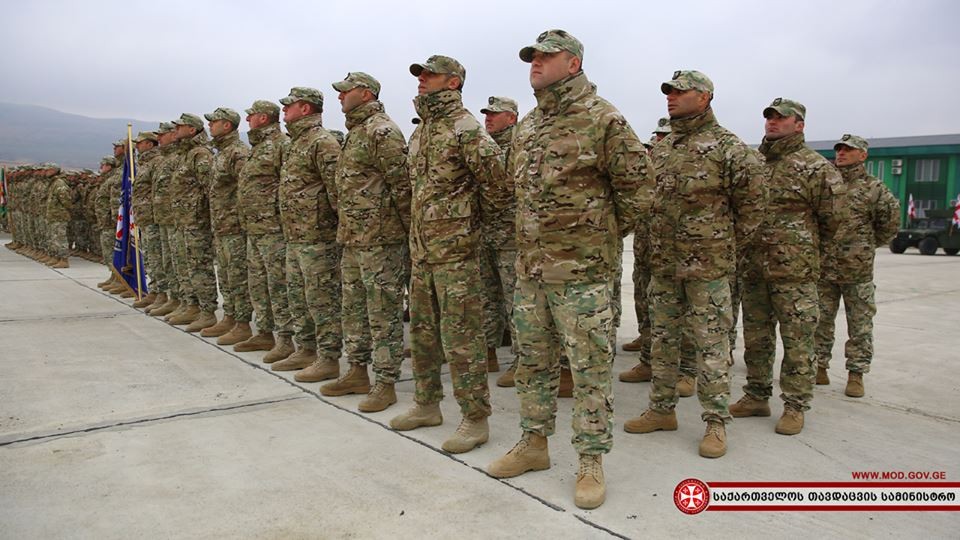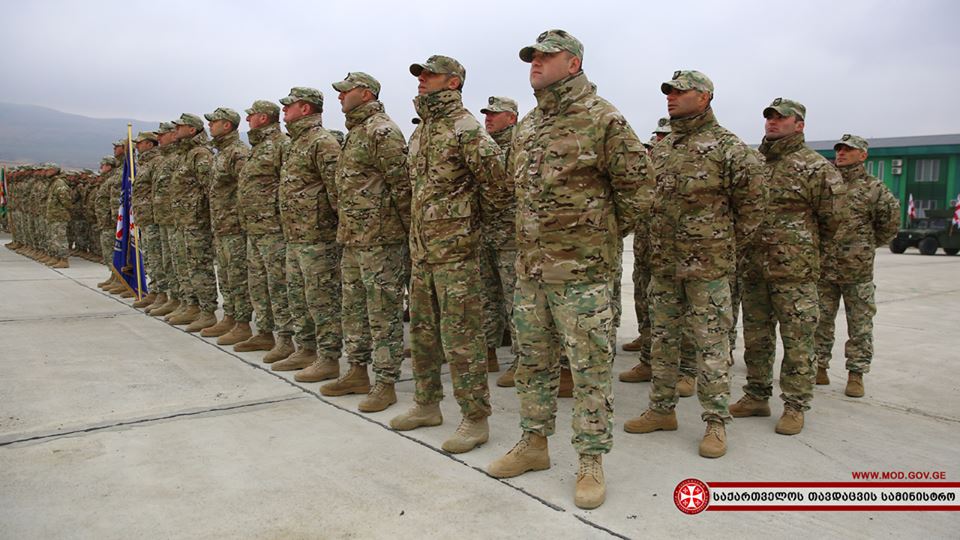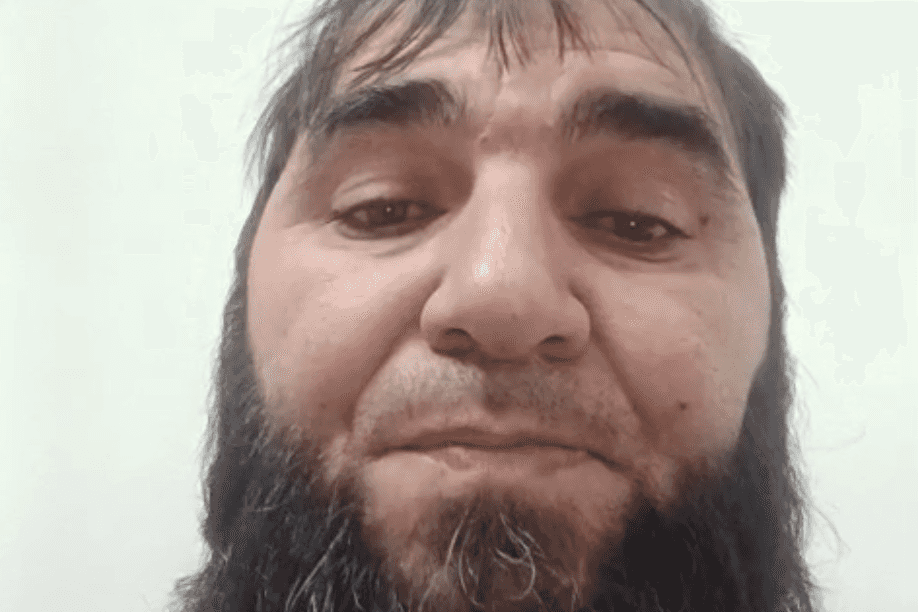

The head of the Georgian Parliament’s Defence Committee is set to introduce a bill to scrap exemptions from mandatory military service for religious clerics, with the exception of Georgian Orthodox priests.
The bill has sparked protests from human rights organisations, who said the initiative was discriminatory. A number of minority religious groups also opposed to the bill and said they were considering addressing the constitutional court if it is endorsed by parliament.
Irakli Sesiashvili, the head of the Defence Committee, told journalists on Tuesday that too many recruits were putting off military service due to religious beliefs, which he said was problematic for the whole system.
‘My initiative will abolish the article which allows recruited clerics to postpone mandatory military service. If they are unwilling to serve [in the military] for religious reasons, they will be able to participate in an alternative service’, Sesiashvili said.
According to current legislation, all Georgian men aged 18–27 are obliged to serve one year of military service, with exemptions for students, religious clerics, for health reasons, and others.
Recruits with a religious exemption may engage in alternative forms of service, with options including in the emergency services, fire-fighting, agricultural production, and healthcare.
Sesiashvili, an MP from the ruling Georgian Dream Party, added that Orthodox clerics would still be exempt from serving at all, due to a constitutional agreement with the Orthodox Church that grants it a special status within Georgia. This was established in 2002 and has since been reflected in other laws, which rights groups say give legal grounds for discrimination lawsuits.
‘Easy to overturn through the courts’
It has been widely speculated that one of the main reasons for Sesiashvili’s initiative was a church registered by non-parliamentary opposition party Girchi. The Christian Evangelical Protestant Biblical Freedom Church officially registered with the Ministry of Justice two years ago and has since issued documents to young men who do not wish to join the army, certifying that they are ‘priests’.
[Read more about Girchi’s church on OC Media: Georgian opposition party registers ‘religion’ for men to avoid conscription]
Levan Jgerenaia, a bishop at Biblical Freedom Church, told OC Media that they had issued up to 20,000 certificates since their registration.
Sesiashvili has not shied away from disclosing that his initiative is directed against Girchi’s certificates. He told Liberali that the bill was not discriminatory as it was ‘directed against organisations that have begun saving recruits from the military service en masse’. He added that Girchi’s church had endangered conscription levels to the point of failure.
He said that his bill could not be considered discriminatory because clerics would be able to take an alternative service, including serving within their religious community.
He also denied that religious groups had expressed any complaints against his proposal and said they did not consider it to be discriminatory. However, several minority religious organisations told OC Media this was not true.
Rusudan Gotsiridze, a bishop of the Evangelical Baptist Church of Georgia told OC Media that the bill was ‘a classic example of discrimination’.
‘I can’t even imagine there’s a person who thinks that this is not discriminatory. I hope that this bill will not make its way out of parliament and I hope that our MPs will maintain a democratic enough state of mind. If the bill passes anyway, it will be very easy to overturn it through the constitutional court’, Gotsiridze said.
She said that she had spoken to several other religious groups who would not back down from filing a constitutional complaint.
The Head of the Georgian Muslims’ Union, Tariel Nakaidze, also expressed concern about the initiative. Nakaidze told OC Media that the law would ‘break the principle of equality’.
‘When one citizen has privileges unlike others of the same status, this is non-democratic. The fact that the Orthodox Church has a constitutional agreement with the state doesn’t mean it should be privileged. This agreement doesn’t entail the humiliation of other religions’, Nakaidze said.
‘Two rulings by the Constitutional Court have said that one’s history and legal status cannot be a grounds for privileges’, he added.
In July 2018, the Constitutional Court ruled that the state granting privileges to the Georgian Orthodox Church over other religious groups in tax and state property legislation was discriminatory and unconstitutional.
Eight religious groups had asked the court to review regulations in the tax code that exempted the Georgian Orthodox Church from paying VAT when building, renovating, and painting churches.
They had also addressed the court regarding the Georgian state property law, which allowed the Georgian Orthodox Church to be granted ownership of state property. Other religious groups in the country can only be granted the right to use state property.
Parliament argued the legislation was intended to contribute to the ‘special relationship’ between the state and the Georgian Orthodox Church. The court ruled that ‘recognition of the special role of the Orthodox Church does not mean it should be privileged’, and that its privileges should either be abolished or applied equally to all religious groups.
‘A vivid example of discrimination from the state’
On Thursday, several rights groups united under the No To Phobia coalition issued a statement calling on Parliament not to allow the adoption of laws that limit the rights of certain groups when there is no justification for such a restriction.
According to their statement, parliament should instead resolve the legal inequality between religious groups.
‘This initiative limits the freedom of religion while also contradicting the principle of equality in the eyes of law’, the statement said.
‘This initiative deserves even more criticism given the current situation where limiting religious freedom and discrimination on the grounds of religion remain a serious challenge in our society’.
‘The fact that this right is guaranteed to Orthodox clerics by constitutional agreement […] does not justify depriving the same rights to other religious groups’, the statement continued.
Zurab Japaridze, the head of Girchi, said on Friday that they would take the case to the European Court of Human Rights if needed.
‘If we have to take the case of Biblical Freedom to the ECHR to defend our rights, this will be a vivid example of discrimination from the state’, Japaridze said.









